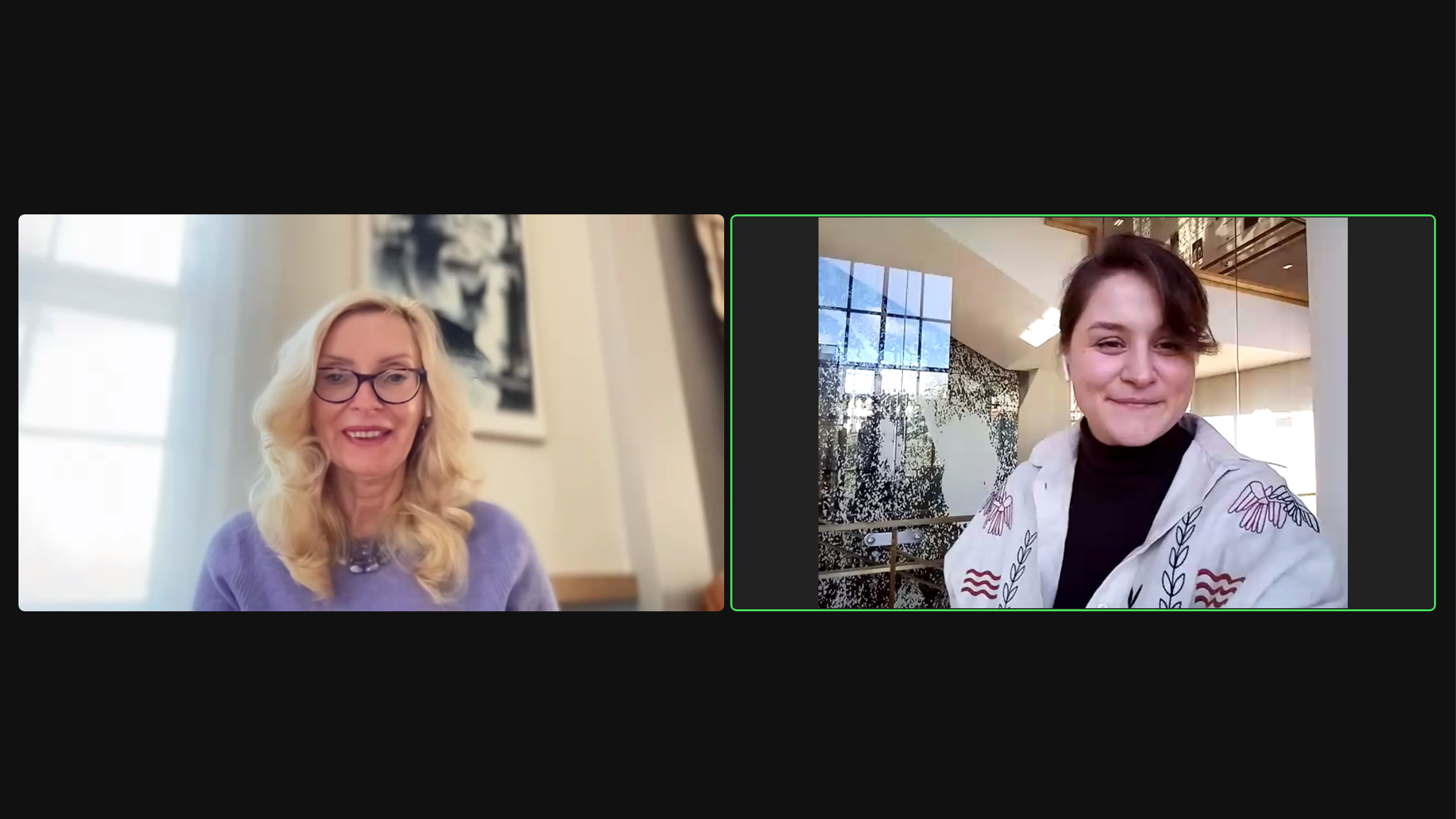In This Story
On February 24, the one-year anniversary of Russia’s invasion of Ukraine, George Mason University’s Carter School for Peace and Conflict Resolution hosted “One Year After: Ukraine War Analysis and Prospects,” an all-day virtual event to discuss the effects of the war and potential post-war contexts.
The event featured Romantsova Oleksandra, executive director of the Center for Civil Liberties, the first Ukrainian organization to win a Nobel Peace Prize. The recognition, which the human rights organization received in 2022, was due in part to their work documenting war crimes against civilians in occupied areas of Ukraine.

Oleksandra spoke about her work to an audience of about 50 people, and answered questions about the war via Zoom. The discussion was moderated by Karina Korostelina, professor and co-director of Mason’s Program for the Prevention of Mass Violence.
“The war in Ukraine has presented a real challenge to those who favor negotiated outcomes,” said Carter School Dean Alpaslan Özerdem in his opening remarks. “However, even if the political space is constrained for negotiations at the moment, we shouldn’t write off what conflict resolution could achieve in the future.”
Oleksandra began by explaining how her work started in 2014—around the time Russia invaded Crimea—and explained how they started with a hotline where they gathered questions about Crimea and Donbas before starting field work there.
After summer 2014, and the disputed Crimean status referendum, their mobile teams on the ground were blocked, Oleksandra said.
Oleksandra described various ways her team collects information, including gathering testimonials from individuals or relatives of those who have been prosecuted. The team also investigates sites where crimes occurred, and documents the aftermath with photos and video.
Other times, the Center for Civil Liberties uses data from institutions, such as hospitals.
“We have a lot of evidence that sexual crimes happened, too, like thousands of cases. People [don’t] very directly speak about that with prosecutors or police, but they easily speak with doctors,” Oleksandra said. “That’s why we have some statistics, and we have a national line where the people can call and speak about that.”
Oleksandra’s organization has used all this information to create databases and maps of where human rights violations have occurred.
“[The] International Criminal Court is working now in Ukraine,” Oleksandra said. “We support them. We give them information, but they will cover maybe 20 cases.”
Despite a backlog of cases waiting to hit the courts, the work is still worth pursuing. Oleksandra said documenting evidence is important to punish those who committed atrocities, bring justice, protect human rights, promote public awareness, influence policy, and move toward sustainable peace.
Oleksandra said their ideal is to create a new model to deal with the thousands of other cases that demand attention. She also hopes an international tribunal against crimes of aggression would be assembled to hold Russian leaders accountable, including President Vladimir Putin.
“I’m really glad to speak with people who are thinking about what happened in Ukraine and trying to understand what kind of experience Ukraine now can give all the world about war crimes,” Oleksandra said.
The session was also meaningful for attendees.
“The presentation was outstanding,” said Carter School Professor Daniel Rothbart.
“The selection of [Oleksandra’s] Center for Civil Liberties for the Nobel Peace Prize demonstrates just how vital her work is for bringing peace to this war-torn nation,” he said. “The center represents an inspiration to all of us hoping for a peaceful end to this tragic violence in Ukraine.”
Click here to watch recorded sessions from "One Year After: Ukraine War Analysis and Prospects."
